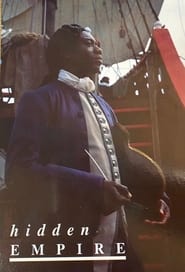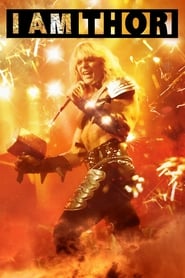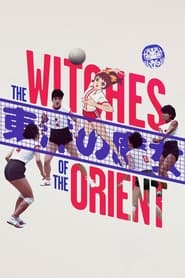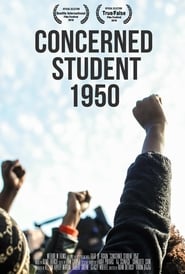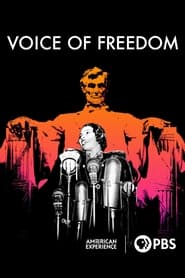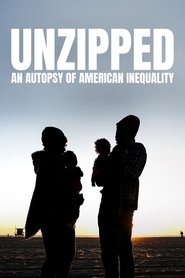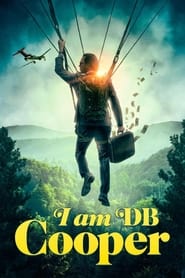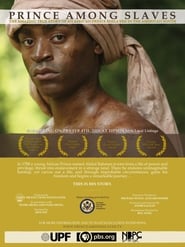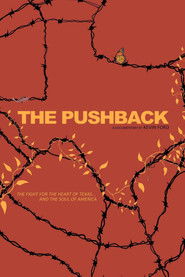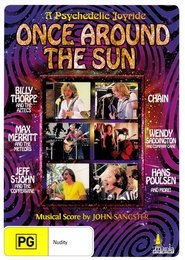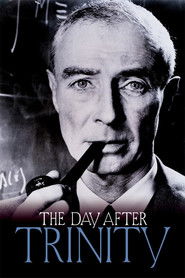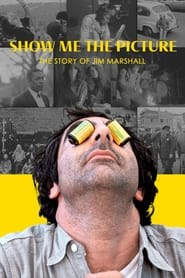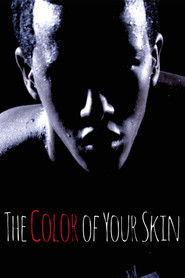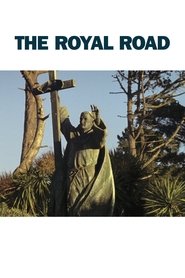Popular Documentary Movies on Free Services - Page 146
-
Hands Up, Chin Down
2018
Hands Up, Chin Down
2018
Based on a series of raw audio recordings and lasting exactly the length of a single round, the film is a conceptual study of the coaching process with its strange mix of brutality and care. -
A Son of Africa: The Autobiography of a Slave
1996
A documentary following the life of Olaudah Equiano, based on his autobiography "The Interesting Narration of the Life of Olaudah Equiano, or Gustavus Vassa the African". -
I Am Thor
2015
I Am Thor
2015
star 7Jon Mikl Thor was a bodybuilding, steel bending, brick smashing rock star in the '70s & '80s whose band, Thor, never quite made it big. Years later he attempts a comeback that nearly kills him. -
Last Shop Standing
2012
Last Shop Standing
2012
star 6.1Last Shop Standing, inspired by the book of the same name by Graham Jones, takes you behind the counter to discover why nearly 2000 record shops have already disappeared across the UK. The film charts the rapid rise of record shops in the 1960's, 70's and 80's, the influence of the chart, the underhand deals, the demise of vinyl and rise of the CD as well as new technologies. Where did it all go wrong? Why were 3 shops a week closing? Will we be left with no record shops with the continuing rise of downloading? Hear from over 20 record shop owners and music industry leaders as well as musicians including Paul Weller, Johnny Marr, Norman Cook, Billy Bragg, Nerina Pallot, Richard Hawley and Clint Boon as they all tell us how the shops became and still are a part of their own musical education, a place to cherish and discover new bands and new music. -
Florent: Queen of the Meat Market
2011
Let Julianne Moore, Isaac Mizrahi, Michael Musto and other famous (and infamous) faces take you on a fantastic voyage to New York City's legendary Florent diner. For 23 years, the all-night eatery in the city's Meat Packing District was prime stomping ground for a surprising mix of A-list celebrities, tourists, families and club kids. This wildly entertaining documentary chronicles the history and final days of this outrageous icon. -
The Witches of the Orient
2021
star 6.5The Japanese volleyball players called the “Oriental Witches” are now in their 70s. From the formation of the team at the factory until their victory at the Tokyo Olympics in 1964, memories and legends rise to the surface and blend inextricably. -
Concerned Student 1950
2016
A series of racist acts prompts three Mizzou students to pick up cameras and take us inside the student movement that brought down their college president. From the hunger strike, to victory, to the fear of violent reprisals, we live with the students who started a campus revolt. -
Voice of Freedom
2021
Voice of Freedom
2021
On Easter Sunday, 1939, contralto Marian Anderson stepped up to a microphone in front of the Lincoln Memorial. Inscribed on the walls of the monument behind her were the words “all men are created equal.” Barred from performing in Constitution Hall because of her race, Anderson would sing for the American people in the open air. Hailed as a voice that “comes around once in a hundred years” by maestros in Europe and widely celebrated by both white and black audiences at home, her fame hadn’t been enough to spare her from the indignities and outright violence of racism and segregation. -
Unzipped: An Autopsy of American Inequality
2021
A provocative feature doc about America's affordable housing crisis told through the prism of iconic Venice CA 90291's struggle with the growing income divide. -
I Am DB Cooper
2022
I Am DB Cooper
2022
star 4.5Two bounty hunters meet an old man claiming to be hijacker DB Cooper. Can they help him dig up the cash he hid half a century ago? Documentary footage blends with period reenactments to tell the tangled tale. -
Prince Among Slaves
2008
Prince Among Slaves
2008
star 6Abdul Rahman, an African prince who was sold into slavery, spent four decades in servitude before an amazing coincidence took him to the White House to meet President John Quincy Adams, where he was granted his freedom. Mos Def narrates this PBS documentary that includes reenactments of scenes from Rahman's life and interviews with historians who discuss the conditions faced by slaves in early America. -
Welcome to Chechnya
2020
Welcome to Chechnya
2020
star 6.8This searing investigative work shadows a group of activists risking unimaginable peril to confront the ongoing anti-LGBTQ program raging in the repressive and closed Russian republic. Unfettered access and a remarkable approach to protecting anonymity exposes this under-reported atrocity–and an extraordinary group of people confronting evil. -
Boogaloo Shrimp Documentary
2019
star 4he life story of Michael Chambers aka "Boogaloo Shrimp: the dancer, actor, singer, comedian and master of waving, ticking, backsliding and liquid animation dance during the 1980's breakdancing phenomenon. -
The Pushback
2020
The Pushback
2020
star 4The first of two Latinas to represent Texas in Congress, Veronica Escobar, and the only African-American woman to run for city council in Austin in 2018, Natasha Harper-Madison, lead a diverse group of progressive voices across Texas as they fight decades of institutional racism and policies of discrimination along the border. The battle over immigrant rights, land seizures to build the border wall, and the troubled racial history of the state form the backdrop to a film that explores how a place once known for its reactionary politics is becoming more liberal, more diverse—and more at risk for violent conflict. -
Once Around the Sun
2012
Once Around the Sun
2012
AT LAST, the long-lost film inspired by Australia's first rock festival - The Pilgrimage For Pop Festival - at Ourimbah, near Sydney in 1970. -
The Day After Trinity
1981
star 7.5This essential, Academy Award–nominated documentary offers an urgent warning from history about the dangers of nuclear warfare via the story of J. Robert Oppenheimer, the enigmatic physicist and all-around Renaissance man who led the Manhattan Project to develop the atomic bomb that America unleashed on Japan in the final days of World War II. Through extensive interviews and archival footage, THE DAY AFTER TRINITY traces Oppenheimer’s evolution, from architect of one of the most consequential endeavors of the twentieth century to an outspoken opponent of nuclear proliferation who came to deeply regret his role in ushering in the perils of the atomic age. -
Show Me The Picture: The Story of Jim Marshall
2020
star 7.7Jim Marshall was a maverick with a camera. An outsider who captured the heights of Rock’N’Roll music and the seismic changes of an era, from the Beatles and Jimi Hendrix, to the civil rights movements and some of the most iconic moments of the 60’s. -
The Color of Your Skin
2019
star 10Despite the perceived progress the world has made over the years, it's become increasingly clear that racism continues to run through our culture. This is abundantly apparent on the streets of London. This difficult documentary explores racism in today's climate through stories from people of various races. -
The Royal Road
2015
The Royal Road
2015
star 4.9A fascinating and unlikely reinvention story, The Royal Road simultaneously explores cinematic spiritual channeling, the conquest and colonization of Mexico and the American Southwest, fading historical Californian urban landscapes, and the passions found in butch identity to achieve an achingly beautiful and poetic defense of remembering. Probing roads from El Camino Real, to the Boulevard of Broken Dreams, to the road right outside the front door, Olson crafts a deeply intelligent and transcending observation of the human condition that reaches for redemption in the embrace of history, nostalgia, mindfulness, and sheer beauty. If you give yourself over to it, it will crack you wide open. -
When Women Kill
1983
When Women Kill
1983
star 6When Women Kill is a poignant documentary exploring the shocking violence that seven women fell victim to at the hands of men. The program profiles the battered women who speak frankly about the cruel abuse, threats, and fears, and the overassertive men who led them down a one-way path to death and destruction. The film features in-prison footage, including a segment depicting a confession by a follower of the notorious Charles Manson, Leslie Van Houten, who was convicted of two killing sprees and committed to life in prison.
 Netflix
Netflix
 Amazon Prime Video
Amazon Prime Video
 Apple iTunes
Apple iTunes
 Apple TV Plus
Apple TV Plus
 Disney Plus
Disney Plus
 Google Play Movies
Google Play Movies
 Paramount Plus
Paramount Plus
 Hulu
Hulu
 HBO Max
HBO Max
 YouTube
YouTube
 fuboTV
fuboTV
 Peacock
Peacock
 Peacock Premium
Peacock Premium
 Amazon Video
Amazon Video
 The Roku Channel
The Roku Channel
 AMC+
AMC+
 Kocowa
Kocowa
 Hoopla
Hoopla
 The CW
The CW
 Vudu
Vudu
 Starz
Starz
 Showtime
Showtime
 PBS
PBS
 Pantaflix
Pantaflix
 FXNow
FXNow
 Tubi TV
Tubi TV
 Kanopy
Kanopy
 Comedy Central
Comedy Central
 Crunchyroll
Crunchyroll
 Microsoft Store
Microsoft Store
 Redbox
Redbox
 Sun Nxt
Sun Nxt
 ABC
ABC
 DIRECTV
DIRECTV
 Crackle
Crackle
 Fandor
Fandor
 Plex
Plex

